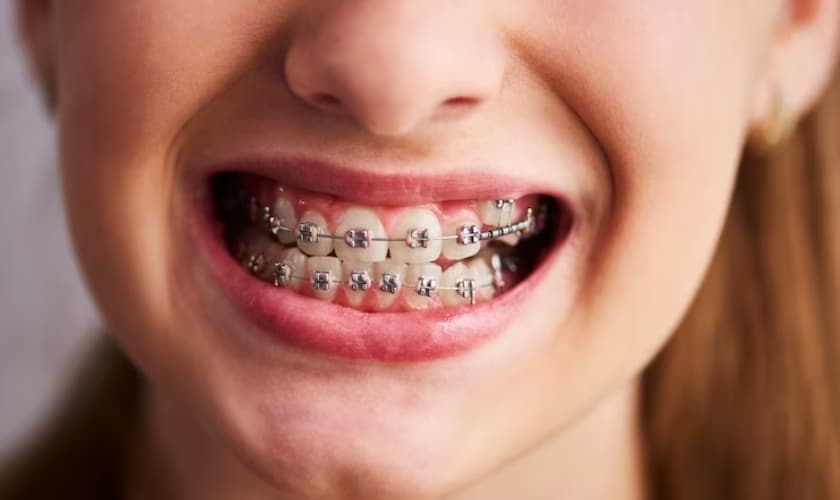What to Do About Irritation from Traditional Braces
By :
Affordable Dentist | February 15, 2024
Braces are an effective tool for achieving a straighter smile, but they can also come with discomfort and irritation. One of the most common hurdles? Dealing with irritation. In this comprehensive guide, we'll explore everything you need to know about managing discomfort from traditional braces. From understanding the causes of irritation to practical tips for relief, we've got you covered.
Whether you're a seasoned brace wearer or just starting your orthodontic treatment, this blog will arm you with the knowledge and strategies. Read on to navigate the road to a beautiful smile with confidence. Let's dive in and discover how to keep irritation from braces at bay while achieving your dream smile, following the footsteps of your dentist in Fort Worth, TX.
Understanding Traditional Braces
Traditional braces, composed of metal brackets and wires, have long been a staple in orthodontic treatment. These braces work by applying gentle pressure to shift teeth into their desired positions gradually. Each bracket is carefully placed on the front surface of the tooth, connected by a wire that is periodically tightened to encourage tooth movement.
Despite their basic design, traditional braces are incredibly effective at correcting a wide range of dental issues, including misalignment, overcrowding, and bite problems. While they may cause some initial discomfort and adjustment period, the result—a straighter, healthier smile—is well worth the temporary inconvenience.
Common Causes of Irritation
The main culprits behind brace-related irritation are the metal brackets and wires. These components can rub against the cheeks, lips, and tongue, leading to soreness, cuts, and ulcers. Additionally, newly adjusted braces may cause temporary discomfort as your teeth begin to shift.
Tips for Relieving Discomfort
Here’s what your dentist in Fort Worth might recommend to minimize irritation caused by braces.
Use Orthodontic Wax: Applying a small amount of orthodontic wax to the brackets or wires that are irritating can provide a protective barrier and prevent further rubbing.
Rinse with Saltwater: Gargling with warm salt water can help soothe irritated gums and reduce inflammation. Pour a glass of warm water with a teaspoon of salt in it, then swish it about your mouth for a minute or two.
Apply Oral Numbing Gel: Over-the-counter oral numbing gels can temporarily alleviate pain and discomfort caused by braces. As needed, directly apply a tiny amount to the affected region.
Stick to Soft Foods: Opt for softer foods that require minimal chewing to prevent further irritation to your mouth. Soups, yogurt, mashed potatoes, and smoothies are all gentle options.
Take Pain Relievers: Over-the-counter pain relievers like ibuprofen or acetaminophen can help alleviate discomfort associated with brace irritation. Follow the dosage instructions on the packaging and consult your dentist if you have any concerns.
Maintaining Oral Hygiene with Braces
Proper oral hygiene is crucial when you have braces to prevent irritation and maintain overall dental health. Here are some essential tips:
- To gently clean the area surrounding the brackets and wires, use fluoride toothpaste and a toothbrush with soft bristles.
- Consider using a water flosser or interdental brushes to clean between teeth and around braces.
- Make an appointment for routine tooth cleanings with your dentist to get rid of tartar and plaque.
Avoiding Problematic Foods
Certain foods can increase the risk of irritation and damage to braces. Avoid:
- Hard, sticky, or chewy foods that can bend wires or break brackets
- Sugary foods and drinks that lead to tooth decay and gum inflammation
Regular Orthodontic Visits
Make sure to attend all scheduled appointments with your orthodontist for adjustments and progress checks. These visits are essential for ensuring that your treatment plan is on track and addressing any issues with your braces promptly.
While irritation from braces is common, it doesn't have to derail your orthodontic journey. By following these tips and maintaining good oral hygiene, you can minimize discomfort and achieve the straight, healthy smile you've always wanted. Remember to communicate any concerns or persistent irritation with your dentist in Fort Worth for personalized advice and solutions tailored to your needs.


